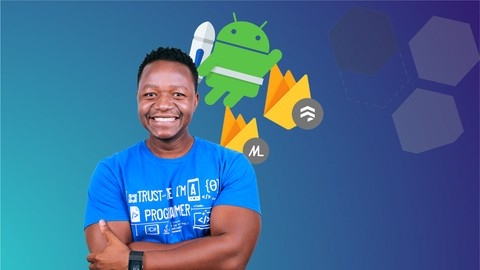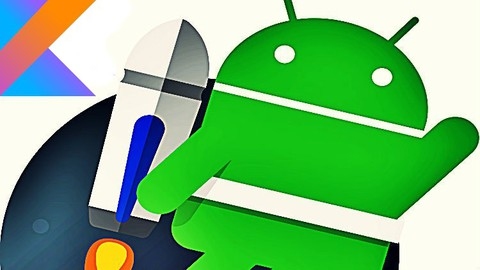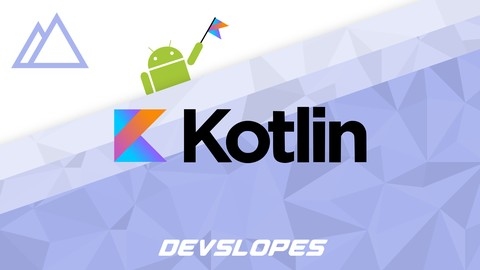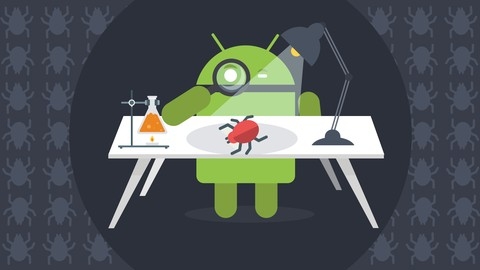The Complete Android Oreo Developer Course - Build 23 Apps!
The course starts by introducing you to Android Studio, the official IDE for Android development.
You’ll learn how to set up the environment on Windows or MacOS and navigate through the interface.
The course then dives deep into Java programming concepts like variables, arrays, loops, and object-oriented programming.
You’ll build simple apps like a number shapes game to solidify your understanding.
After mastering Java basics, you’ll explore advanced Android features such as animations, video/audio handling, and JSON data processing.
Projects like a celebrity guessing game and a weather app will help you apply these concepts.
Moving on, you’ll learn about maps and geolocation services in Android.
You can build apps that display the user’s location, get information about places, and even track memorable locations visited.
The course covers permanent data storage techniques like SQLite databases and shared preferences.
One of the highlights is building an Instagram clone using the Parse server.
You’ll implement features like user authentication, posting photos, viewing feeds, and more.
The course also introduces you to Kotlin, a modern language for Android development.
Other notable projects include a Bluetooth app, a Super Mario Run clone using a game engine, adaptive icons, custom fonts, version control with Git, and an ARCore augmented reality app.
You’ll learn how to publish your apps on Google Play and market them effectively.
The course even has bonus chapters on building clones of popular apps like Uber, WhatsApp, and Flappy Bird.
The Complete Android 14 & Kotlin Development Masterclass
You’ll start by setting up your development environment with Android Studio and learn the fundamentals of Kotlin programming language.
The course begins with a simple Rock Paper Scissors game, where you’ll learn about variables, data types, control structures, and user input handling.
As you progress, you’ll dive into object-oriented programming concepts, creating classes, objects, and understanding inheritance.
One of the highlights is building a Unit Converter app, which will teach you about Jetpack Compose, a modern UI toolkit for building native Android apps.
You’ll learn how to create composable functions, handle user interactions, and manage state using ViewModel architecture.
The course also covers essential topics like navigation, working with databases using Room, making network calls with Retrofit, parsing JSON data, and integrating Google Maps API.
You’ll build practical apps like a Shopping List app, a Recipe app, a Wishlist app, and even a Music app with a drawer menu and bottom navigation.
Towards the end, you’ll learn about Firebase, a comprehensive app development platform.
You’ll build a chat room app, implementing features like email authentication, real-time databases, and push notifications.
Throughout the course, you’ll gain hands-on experience with various Android development concepts, tools, and libraries.
The instructor provides clear explanations, coding exercises, and challenges to reinforce your understanding.
You’ll also learn best practices for writing clean, maintainable code and optimizing app performance.
Android Java Masterclass - Become an App Developer
You’ll start by setting up your development environment, installing Android Studio, and configuring the Android SDK across Windows, Mac, and Linux platforms.
The course walks you through creating your first “Hello World” app, giving you a tour of Android Studio’s interface and features like setting up virtual devices and running apps on emulators or physical devices.
Next, you’ll build a simple “Button Counter” app to understand layouts, widgets, event handling, and app lifecycle methods.
This hands-on project covers core concepts like constraint layouts, null checking, saving instance state, logging, and overriding methods.
The course then dives into Java programming fundamentals essential for Android development, including classes, inheritance, loops, comparisons, and data structures like ArrayLists.
You’ll apply these concepts by building a calculator app, learning to create custom layouts, handle orientation changes, and implement operations logic.
As you progress, you’ll develop real-world apps like a “Top 10 Downloader” that fetches data from the internet using AsyncTasks and parses XML responses.
You’ll also build a YouTube player app utilizing the YouTube API and a Flickr image viewer that demonstrates networking, JSON parsing, RecyclerViews, touch events, and material design principles.
The course dedicates substantial time to databases, covering SQLite, SQL queries, content providers, and permissions handling.
You’ll create a “Friends” app to practice these concepts and then build a more complex “TaskTimer” app with multiple database tables, views, filters, date pickers, and sorting functionality.
Throughout the course, you’ll learn about fragments, their lifecycle, dynamic fragment transactions, retaining instances, dialogs, compatibility libraries, vector drawables, localization testing, and updating to newer Android versions.
The instructor provides clear explanations, code walkthroughs, and real-world examples, ensuring you understand both the theoretical concepts and practical implementation details.
You’ll also find helpful resources like source code for all the apps covered in the course.
Android App Development Masterclass using Kotlin
The course starts by guiding you through setting up the necessary tools like Android Studio and configuring the Android SDK.
You’ll learn the basics of Kotlin programming with tutorials covering variables, conditions, classes, inheritance, loops, and more.
The course then dives into building practical Android apps, beginning with a simple “Button Counter” app to understand layouts, widgets, and event handling.
As you progress, you’ll develop more complex apps like a calculator, a top 10 downloader using AsyncTask, a YouTube player, and a Flickr browser that fetches and displays photos from Flickr’s API.
Along the way, you’ll learn core Android concepts such as activities, fragments, the activity lifecycle, saving instance state, permissions, content providers, databases with SQLite, and working with JSON data.
The course also covers advanced topics like ViewModel, LiveData, Coroutines for background processing, dialogs, settings, multiple database tables, database upgrades, and generating reports.
The instructor provides hands-on coding examples, challenges, and solutions to reinforce your understanding.
You’ll learn best practices, such as writing idiomatic Kotlin code, using libraries like Picasso for image loading, and implementing material design principles.
The course keeps you up-to-date with the latest Android SDK, Kotlin, and Gradle versions, ensuring you’re learning with the most recent tools and techniques.
Flutter & Dart: Complete App Development Course [NEW 2024]
Flutter is a powerful framework for building cross-platform mobile apps, so you’ll learn how to build apps for both Android and iOS platforms using a single codebase.
You’ll start by setting up the development environment for Windows or Mac, and then dive into the basics of Dart programming language.
The course covers object-oriented programming concepts, data structures, and collections in Dart, laying a solid foundation for Flutter app development.
Next, you’ll learn about Flutter widgets, the building blocks of Flutter apps.
You’ll explore stateless and stateful widgets, widget hierarchy, and reusability.
The course guides you through building several apps, including a tip calculator, a movie app, and a book tracker app, allowing you to apply the concepts you’ve learned.
The course also covers important topics like state management with the Provider package, navigation, parsing JSON data from APIs, and integrating with databases like SQLite and Firebase Realtime Database.
You’ll build apps like a water intake tracker and a community board app, gaining practical experience with these technologies.
Additionally, you’ll learn about themes and material design in Flutter, networking and HTTP requests, animations, and publishing your apps to the Google Play Store and App Store.
Throughout the course, you’ll work on hands-on projects, refactoring code, and implementing best practices.
The instructor provides clear explanations, code examples, and resources to reinforce your understanding.
The Complete Android 14 Developer Course - Java & Kotlin
This course starts by teaching you the fundamentals of Java and Kotlin programming languages, covering concepts like variables, data types, operators, control structures, and object-oriented programming principles.
You’ll learn through coding exercises that reinforce your understanding.
Once you have a solid grasp of the languages, the course dives into Android development.
You’ll learn how to set up Android Studio, create emulators, and build your first app.
It covers essential Android concepts like views, layouts, app components (activities, services, broadcast receivers), and app resources.
The course then takes you through building several practical apps like a unit converter, lucky number generator, French teacher app, and more.
These hands-on projects help you apply what you’ve learned and understand how different Android components work together.
One of the highlights is the extensive coverage of advanced topics like adapters, RecyclerView, CardView, fragments, navigation components, Android Jetpack libraries (ViewModel, LiveData, Data Binding, Room, Paging), and architecture patterns like MVVM.
You’ll build complex apps like a contacts manager, movie app, and quiz app, utilizing these concepts.
The instructor also covers integrating external services like Firebase (Realtime Database, Firestore, Authentication, Storage), Google Maps, and Machine Learning Kit.
You’ll learn to build apps like a journal app, chat app, and OCR app using these services.
Additionally, the course touches on monetization with AdMob, dependency injection with Dagger2, and advanced topics like coroutines and architecture patterns like MVC and MVP.
Throughout the course, you’ll work with both Java and Kotlin, giving you the flexibility to choose your preferred language.
The instructor provides clear explanations, practical examples, and downloadable resources like source code and design files.
The Comprehensive Android App Development Masterclass
The course starts by installing Android Studio on Windows and Mac machines, ensuring you have the proper setup.
It then dives into Java programming basics like variables, operators, loops, and object-oriented concepts - essential for Android development.
You’ll build simple Java programs to solidify these concepts.
Next, it introduces Android development by creating your first app “ShowMyName” to understand the project structure, layouts, and event handling.
You’ll then build the “Make It Rain” app, covering UI design, buttons, event listeners, and logging.
The course covers crucial Android concepts like activities, layouts, data binding, architecture patterns like MVC, parsing JSON from APIs, and networking using the Volley library.
You’ll build apps like a Quiz app, Trivia app, and Todo app to apply these concepts practically.
It also explores Android’s persistence mechanisms like SharedPreferences, SQLite databases, and the modern Room library.
You’ll learn to display data in lists using ListView and RecyclerView widgets while building a full-fledged Contact Manager app.
Further topics include location services, Google Maps integration, media playback, animations, material design, drawing on canvas, machine learning with ML Kit, and monetization strategies like AdMob.
The course wraps up by teaching you to create launcher icons and publish your apps on the Google Play Store.
With over 200 lectures and 30 hours of content, this course is quite comprehensive, covering both fundamentals and advanced Android app development concepts through hands-on projects.
The instructor explains concepts clearly and provide ample resources and source code.
(Jetpack, Architecture & More)Advanced Android Bootcamp 2024
This comprehensive course covers a wide range of modern Android development concepts and tools, making it an excellent choice for those seeking to become proficient in building robust and scalable Android applications.
The syllabus starts with fundamental topics like Data Binding, ViewModels, and LiveData, which are essential components of the Model-View-ViewModel (MVVM) architecture pattern.
You’ll learn how to efficiently bind data to views, manage UI-related data in a lifecycle-conscious way, and observe data changes using LiveData.
Moving forward, the course dives into Kotlin Coroutines, a powerful asynchronous programming paradigm that simplifies concurrent execution.
You’ll explore coroutine fundamentals, scopes, dispatchers, and structured concurrency, enabling you to write efficient and responsive code.
The course then covers the Room Database Persistence Library, a crucial tool for working with SQLite databases in Android.
You’ll learn how to create entities, data access objects (DAOs), and database classes, as well as implement CRUD (Create, Read, Update, Delete) operations using Room.
Networking is a vital aspect of modern app development, and this course covers Retrofit, a popular HTTP client library for Android.
You’ll learn how to make GET and POST requests, work with path and query parameters, and handle response data using Retrofit in combination with Kotlin Coroutines.
The syllabus also includes essential topics like Notifications, WorkManager (for background task scheduling), and Dependency Injection with Dagger 2.
These concepts are crucial for building robust and maintainable Android applications.
One of the highlights of the course is the MVVM Clean Architecture project examples, which demonstrate how to structure your codebase using the Clean Architecture principles.
You’ll learn how to separate concerns, create a modular and testable codebase, and implement use cases and repositories.
The course also covers Unit Testing fundamentals, teaching you how to write effective tests for ViewModels, Room databases, and LiveData components.
Additionally, you’ll learn about View Binding, a more efficient way to access views compared to the traditional findViewById method.
For those interested in Jetpack Compose, the course offers a comprehensive introduction to this modern UI toolkit.
You’ll learn about composables, state management, effect handlers, and best practices for architecting Jetpack Compose applications.
Kotlin for Android: Beginner to Advanced
You’ll kick off by setting up the essential tools like JDK and Android Studio, getting familiar with the powerful Android Emulator.
Immediately, you’ll get hands-on by building your first Kotlin app, the “DinnerDecider” - a fun way to decide what’s for dinner!
This practical approach continues as you explore running apps on real devices.
Next, you’ll solidify your Kotlin foundation by mastering variables, strings, functions, conditional logic, collections, loops, and the powerful lambda expressions.
You’ll also dive into classes, inheritance, and handling nullability elegantly with Kotlin’s null safety features.
Also, you’ll venture into the world of version control with Git, learning to work with local and remote repositories on GitHub.
This invaluable skill will streamline collaboration and project management.
The course then dives deep into Android development, starting with layouts.
You’ll master creating responsive UI layouts for phones and tablets using ConstraintLayout, ensuring your apps look great on various screen sizes and orientations.
Get ready for an immersive experience as you build a real-world app called “Swoosh” while learning about activities, intents, context, and the activity lifecycle.
Along the way, you’ll tackle challenges like handling orientation changes and saving instance state.
Next up, you’ll explore ListView and RecyclerView, mastering the art of displaying lists and grids of data efficiently.
You’ll even build a “CoderSwag” app to showcase your newfound skills.
But the excitement doesn’t stop there!
You’ll embark on building a full-fledged chat app called “Smack” using web requests, APIs, and sockets.
From user authentication to real-time messaging, you’ll gain invaluable experience in building robust, networked applications.
Finally, you’ll learn the process of publishing your apps to the Google Play Store, including generating signed APKs, creating store listings, and navigating the publishing process.
Android Unit Testing and Test Driven Development
You’ll start by learning the basics of unit testing, including how to write your first unit tests, name them properly, handle nullability, and choose effective test cases.
The course then dives into the concept of test doubles, which are crucial for testing code that depends on external dependencies.
You’ll learn about different types of test doubles, such as mocks, and how to use them effectively.
One of the key tools covered in the course is Mockito, a popular mocking framework for Java.
You’ll learn how to use Mockito to create and configure mock objects, making it easier to isolate and test individual components of your code.
The course also provides a deep understanding of Test Driven Development (TDD), a software development process where tests are written before the production code.
You’ll explore different TDD techniques, such as the “All Tests Up-Front” and “Uncle Bob’s” approaches, along with their benefits and limitations.
As you progress, you’ll learn how to apply these concepts to real-world Android applications.
The course includes a case study of a StackOverflow browser application, where you’ll practice navigating Git history, unit testing existing use cases and controllers, and even performing mutation testing.
Additionally, the syllabus covers important topics like testability in Android, handling time-related functionality in tests, and the challenges of unit testing in the Android framework.
Throughout the course, you’ll gain hands-on experience through various exercises, ensuring that you can apply the concepts you’ve learned effectively.
The lectures are structured in a way that makes it easy to follow along and understand the material, even if you’re new to unit testing or TDD.
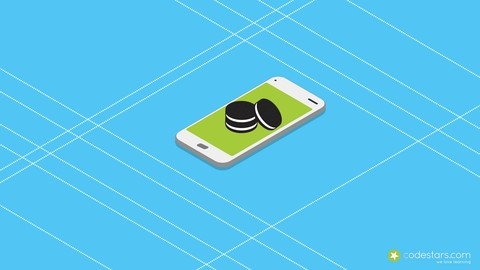

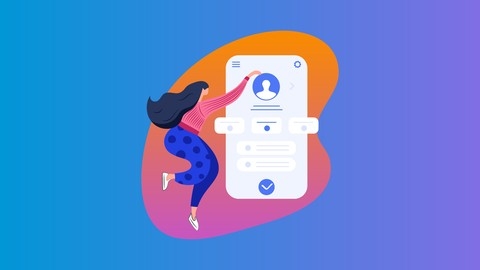
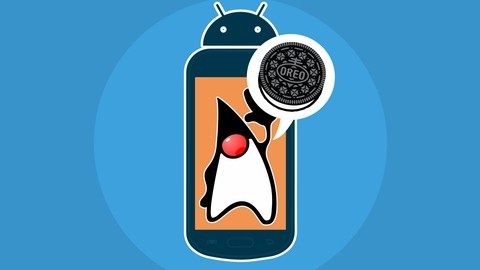
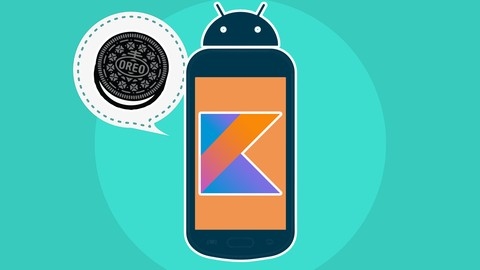
![Flutter & Dart: Complete App Development Course [NEW 2024]](/img/best-android-development-courses-udemy/1575278_FlutterDartCompleteAppDevelopmentCourseNEW2024.jpg)

